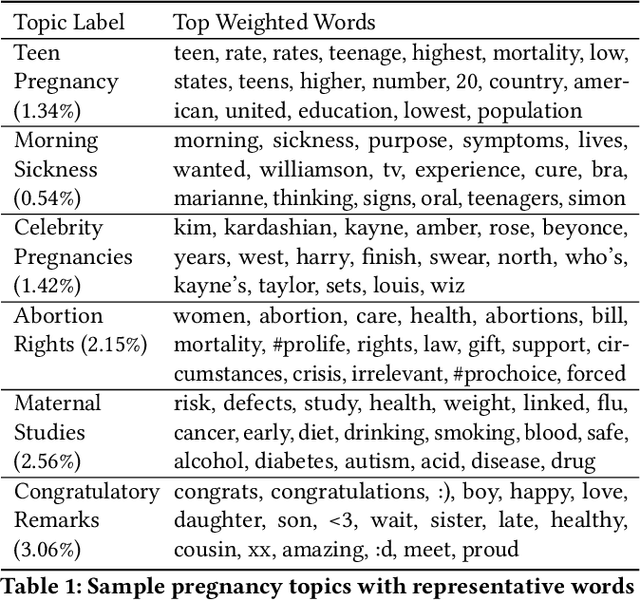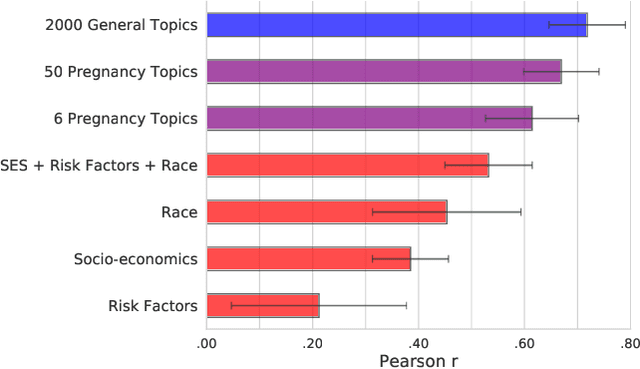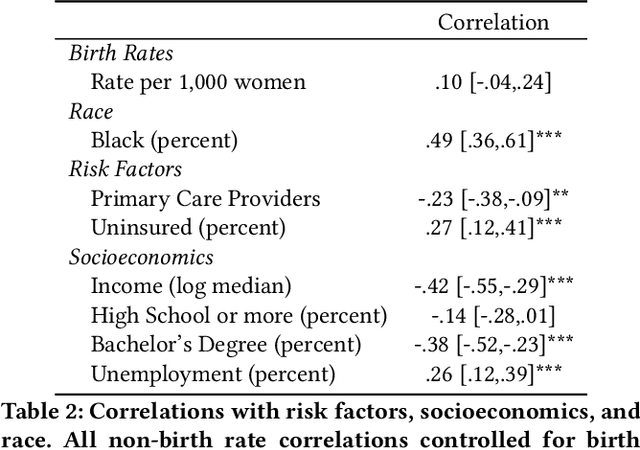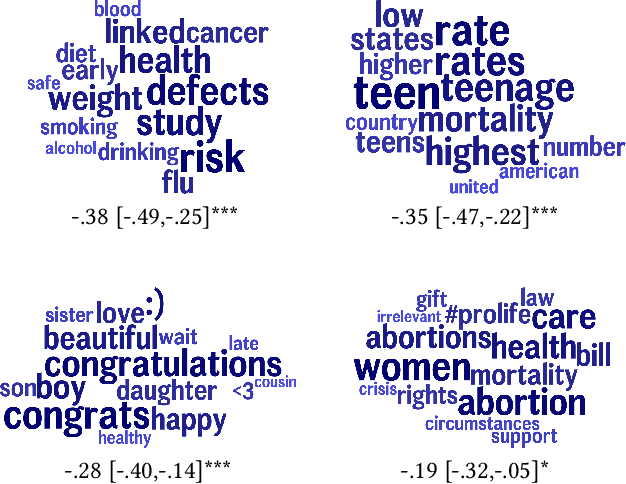Anna Tedijanto
Quantifying Community Characteristics of Maternal Mortality Using Social Media
Apr 14, 2020



Abstract:While most mortality rates have decreased in the US, maternal mortality has increased and is among the highest of any OECD nation. Extensive public health research is ongoing to better understand the characteristics of communities with relatively high or low rates. In this work, we explore the role that social media language can play in providing insights into such community characteristics. Analyzing pregnancy-related tweets generated in US counties, we reveal a diverse set of latent topics including Morning Sickness, Celebrity Pregnancies, and Abortion Rights. We find that rates of mentioning these topics on Twitter predicts maternal mortality rates with higher accuracy than standard socioeconomic and risk variables such as income, race, and access to health-care, holding even after reducing the analysis to six topics chosen for their interpretability and connections to known risk factors. We then investigate psychological dimensions of community language, finding the use of less trustful, more stressed, and more negative affective language is significantly associated with higher mortality rates, while trust and negative affect also explain a significant portion of racial disparities in maternal mortality. We discuss the potential for these insights to inform actionable health interventions at the community-level.
 Add to Chrome
Add to Chrome Add to Firefox
Add to Firefox Add to Edge
Add to Edge